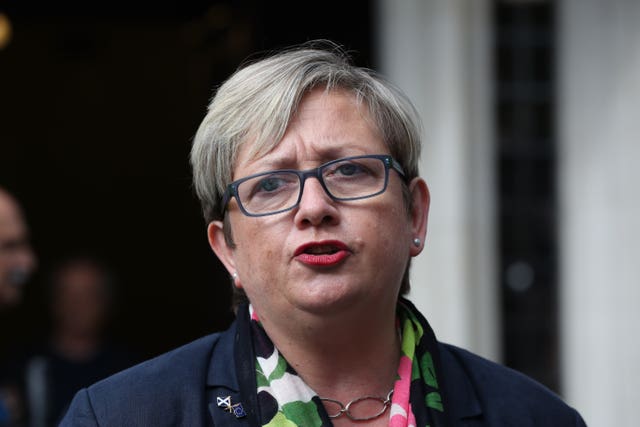
Rishi Sunak is facing calls to abandon the Government’s controversial attempt to overhaul human rights legislation amid a warning that it would seriously damage people’s ability to enforce their rights.
A cross-party committee of MPs and peers said the Bill of Rights showed a “disregard” for the UK’s international legal obligations and would lead to more cases going to the European Court of Human Rights in Strasbourg.
Ministers say the Bill – which would replace the Human Rights Act which enshrines the European Convention on Human Rights in UK – is intended to curb abuses of the current system.
However the parliamentary Joint Committee on Human Rights said the Bill would create new barriers which make it harder for people to enforce their rights inside and outside courts.
Rather than creating a strong new legal framework, the committee said the Bill appeared to be designed to “tip the balance” in favour of the state when facing allegations of human rights violations.
It concluded the likely result would be that more people would need to go to the court in Strasbourg to enforce their rights, and that more adverse judgments were likely to be made against the UK.
“The Government should not proceed with this Bill,” the committee said.
“It weakens rights protections, it undermines the universality of rights, it shows disregard for our international legal obligations; it creates legal uncertainty and hinders effective enforcement; it will lead to an increased caseload in Strasbourg; and will damage our international reputation as guardians of human rights.”
The Bill of Rights was originally introduced under Boris Johnson by Deputy Prime Minister and Justice Secretary Dominic Raab only to be dropped by Liz Truss when she became prime minister and summarily sacked Mr Raab.

It was revived when Mr Sunak entered No 10 and Mr Raab was reappointed to his previous role, although when he appeared before the Commons Liaison Committee last month the Prime Minister refused to commit to a parliamentary timetable to bring it into law.
In its report, the committee said there appeared to be little wider support for the proposed changes, with victims of violence against women, care home residents, and those whose family members have lost their life due to the actions of the police or other state actors among those raising objections.
It expressed concern the Bill would require courts to ignore safeguards which protect people in “urgent situations” when there is a credible risk to life or of torture or inhuman or degrading treatment.
It would also impact on the requirement on public bodies to take action to protect rights, such as conducting effective investigations into the loss of life – as in the Hillsborough inquests.
Committee chair Joanna Cherry said: “Human rights are universal. A Bill of Rights should reaffirm and reinforce the fundamental rights that protect everyone in the UK, but this Bill does nothing of the sort.
“Instead, it removes and restricts certain human rights protections that the Government finds inconvenient and prescribes a restrictive approach to the interpretation and application of the European Convention on Human Rights in the courts of our domestic legal systems.
“The end result, if the Bill is enacted in its current form, will be more barriers to enforcing human rights, more cases taken to Strasbourg and more adverse judgments against the UK.”
A Ministry of Justice spokeswoman responded: “The Bill of Rights builds on the UK’s proud tradition of liberty by strengthening freedom of speech, reinjecting a healthy dose of common sense to the system and ending abuse of our laws.
“The Government was elected on a manifesto that committed to updating the Human Rights Act to ensure there is a proper balance between the rights of individuals, our vital national security and effective government – that is what we are doing.”


Why are you making commenting on The National only available to subscribers?
We know there are thousands of National readers who want to debate, argue and go back and forth in the comments section of our stories. We’ve got the most informed readers in Scotland, asking each other the big questions about the future of our country.
Unfortunately, though, these important debates are being spoiled by a vocal minority of trolls who aren’t really interested in the issues, try to derail the conversations, register under fake names, and post vile abuse.
So that’s why we’ve decided to make the ability to comment only available to our paying subscribers. That way, all the trolls who post abuse on our website will have to pay if they want to join the debate – and risk a permanent ban from the account that they subscribe with.
The conversation will go back to what it should be about – people who care passionately about the issues, but disagree constructively on what we should do about them. Let’s get that debate started!
Callum Baird, Editor of The National
Comments: Our rules
We want our comments to be a lively and valuable part of our community - a place where readers can debate and engage with the most important local issues. The ability to comment on our stories is a privilege, not a right, however, and that privilege may be withdrawn if it is abused or misused.
Please report any comments that break our rules.
Read the rules hereLast Updated:
Report this comment Cancel